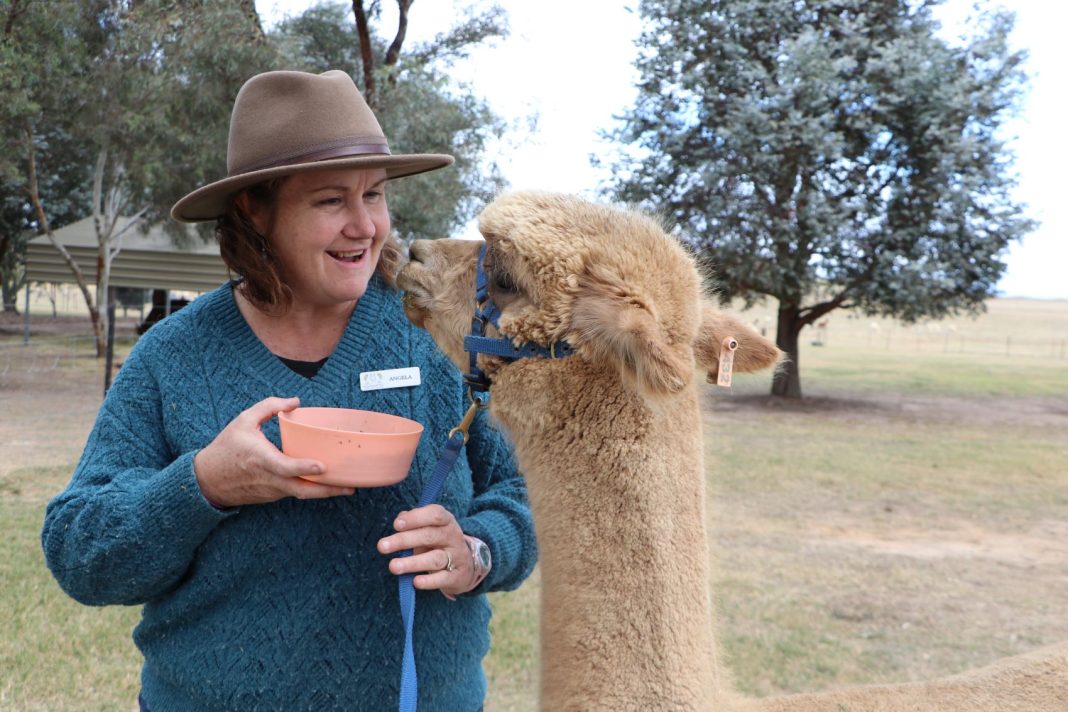Looking for something different to do around town? CD has hit the streets in search of activities that locals may not have heard about, but we think would love to do. This week we jumped the border to Murrumbateman to meet a pack of alpacas and llamas at Blackwattle Alpaca Farm.
Members of the camel family, llamas and alpacas are known for their lush coats, long necks, intelligence and gentle nature. The tours at Blackwattle allow you to feed, walk and pet some of the 65 alpacas and 5 llamas on the property.
Accompanied by one of the tour guides, guests are informed where the animals like to be petted, their favourite foods and fun facts like the creatures can reach speeds of 50-55km an hour in short bursts.
Original farm owner and manager Angela Smith and her husband Matthew intended to buy goats when they moved to the farm 13 years ago, however, they soon found themselves alpaca owners.
“I like their nature and from a livestock point of view, I think they are the easiest to look after; sheep, cows and pigs they’re great but they are higher maintenance,” says Angela.
A visual artist, Angela also runs Blackwattle Yarn and Fibre, where she and her team hand-dye yarn created from the fibre of the alpacas on the farm. The fibre business came first, when customers were buying yarn, they would often ask if they could meet the quirky, cute creatures.
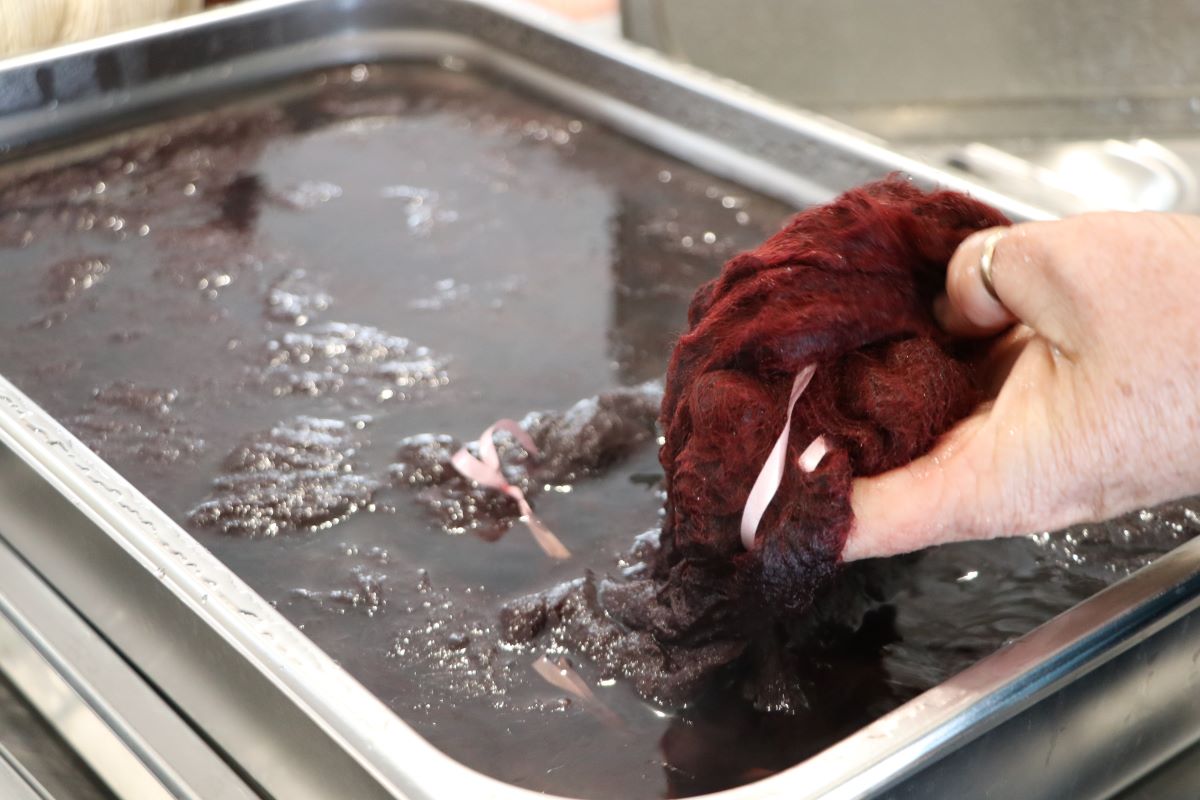
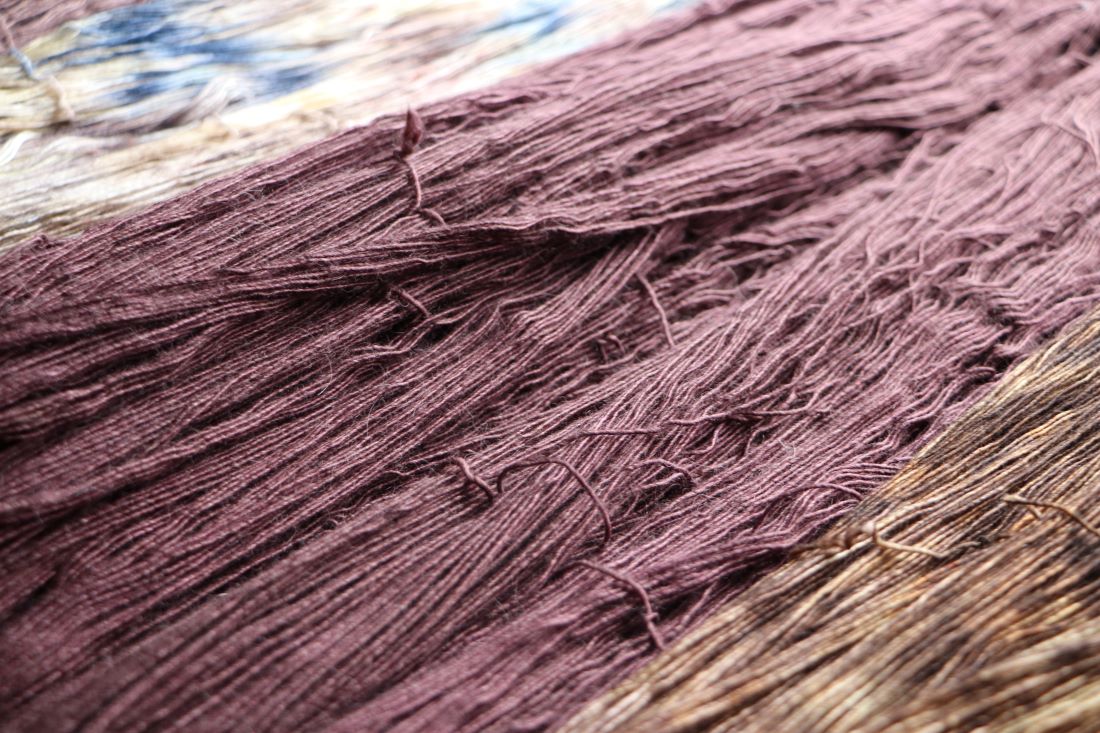
During the New South Wales drought of 2019 and 2020 and the fires that followed, Angela and the team started offering the tours. The farm was at 100 percent dirt and they had to ship in bails of feed from Victoria to sustain the animals.
“We had John from Four Winds Vineyards come down with his tractor to help us offload it because we couldn’t do square bails, we had to do the big round bails and he came down with his tractor to help us unload,” says Angela.
The yarn business started selling products at a discounted rate to try and keep the feed in stock. Then they launched the tours to ensure they could keep feeding their herd.
“My biggest priority is keeping the animals well and safe,” says Angela.
Tours can now be booked in during opening hours Thursday – Sunday with Thursday offering private tours only. It is not unusual for weekends to book out, with people keen to get up close and often take a selfie or two with the striking animals.
There are a number of tours including the Hand Feeding Tour, Farm Tour, Alpaca Adventure, Alpaca Picnic, Lunch with the Llamas and the most popular offering, Brunch with the Bunch.
“It is a meet and greet with the llamas. You have an hour in the paddock where you meet and hand feed them, then you come back in and we serve you a fully cooked brunch. We usually run them three times a month,” says Angela.
This Mother’s Day, the team is hosting a special edition Brunch with the Bunch as they welcome special guests – four camels who will be available for feedings and rides. The day will also be raising funds for Bossom Buddies ACT, a local breast cancer support charity.
“10 per cent of sales from our shop will be donated directly to them. One of our staff members is a [breast cancer] survivor, so I’m doing it on her behalf,” says Angela.
CD experienced the Alpaca Interactive Tour, where we guided a halter-trained alpaca around the field, the tour allows you to connect with the alpaca you are leading around. The alpaca fur is like petting a cloud and throughout the 45 minutes, you get to know the personality of your walking buddy.
Caramello was cautious and gentle while Paddington was more confident and had a cheeky personality, leading his walker into a garden bed where he tried to steal a bite of a tree. Angela explained that each animal is trained to walk with people but not all of them want to and none of them are forced.
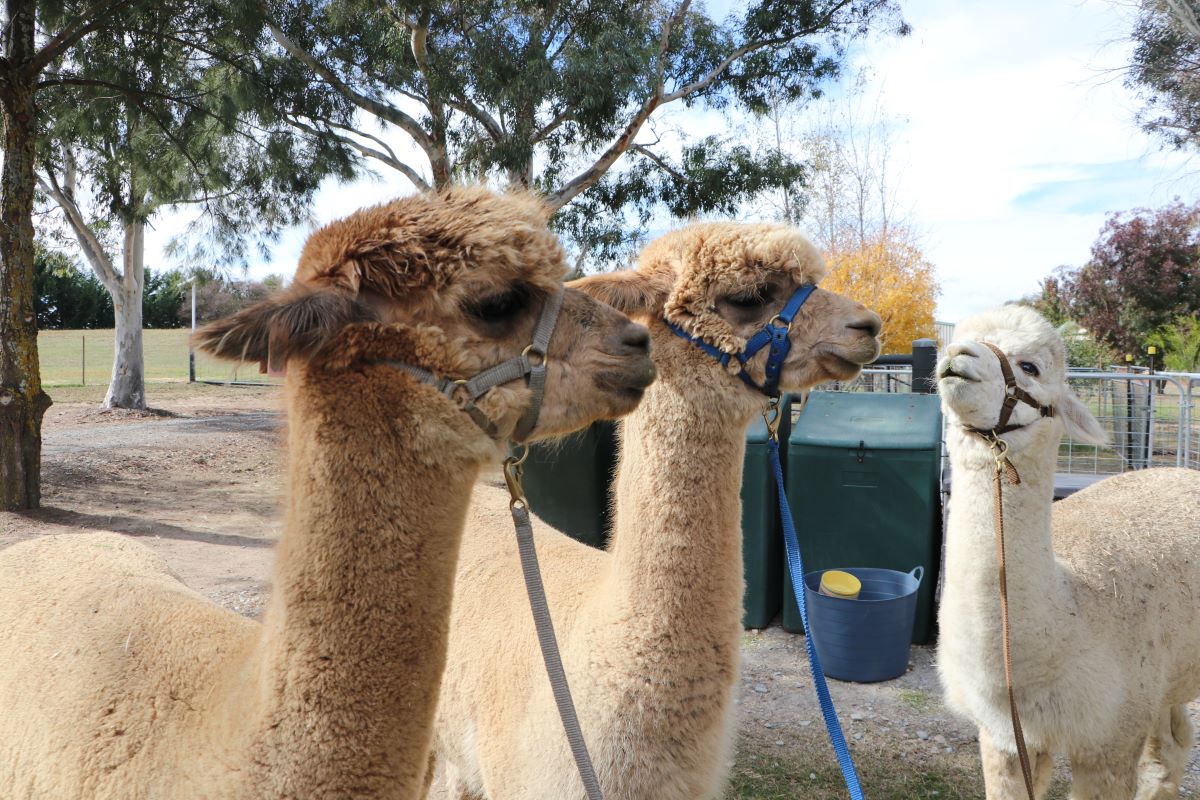
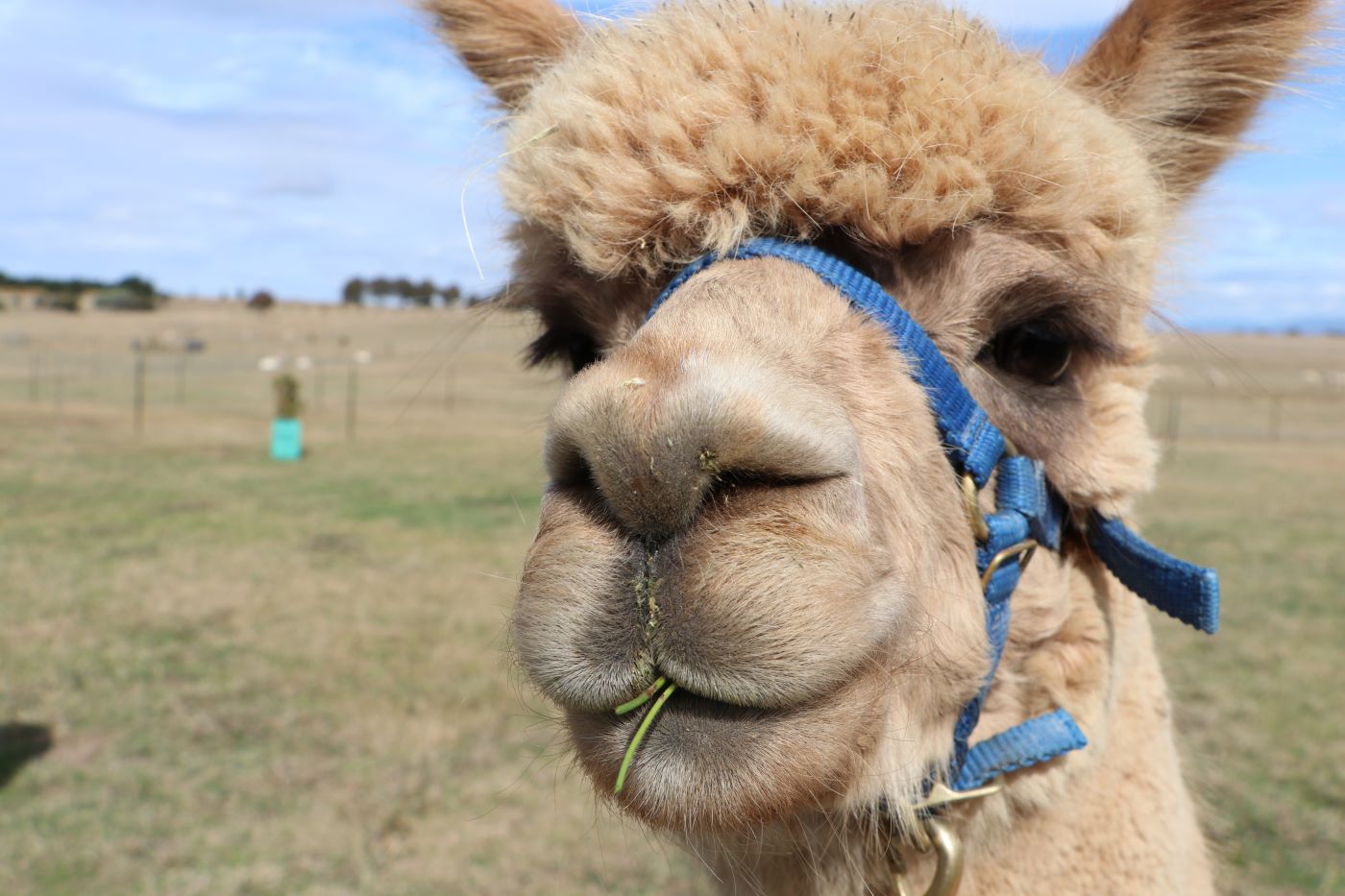
The herd is bred for personality explains Angela, their pack is gentle and for the most part okay with humans, those that don’t want to go on tours are kept safely in the rear paddock. Pregnant for 11 ½ months, they have to choose when they are bred to ensure the right temperature and solid food supply.
“We didn’t have babies this year, I was worried about the paddocks. My priority is animal welfare, so if I couldn’t keep my girls healthy enough to carry babies without spending a fortune on feed, I’m not going to have babies.”
They have recently bred 13 alpaca ladies and are hoping they will have that many bubs next year, Angela says the only thing cuter than an alpaca is a baby one. Angela says they are genetically designed to give birth between 10am-3pm as a means for survival.
“Where they come from; Peru, Chile and Ecuador, they have a lot of predators that prey at night, like mountain lions and wolves, so the babies have to be up and running by that time to keep up with the herd,” says Angela.
At Blackwattle, they don’t have to worry about mountain lions and wolves and stay with their mothers until about six months before being moved in with an older uncle or aunt. While Angela’s priority is always the animals on the farm, sometimes new mothers don’t hold the same values.
During the drought, their current head honcho Alpaca was born. Alpacas often move away from the herd when giving birth and during the hot season, one thought the mostly dried-up dam would be the best place to go. Looking outside, Angela spotted Savannah on the dam wall and knew she must have been giving or given birth.
“The dam wall she was standing on was quite steep, so I high-tailed it down and when I got there he had actually rolled into the dam water, so he got called Aquaman. Then I had a conversation with Savannah about babies and water safety,” smiles Angela.
Book in your visit to Blackwattle Alpaca Farm; blackwattlealpacas.com.au
Canberra Daily is keen to hear from you about a story idea in the Canberra and surrounding region. Click here to submit a news tip.

